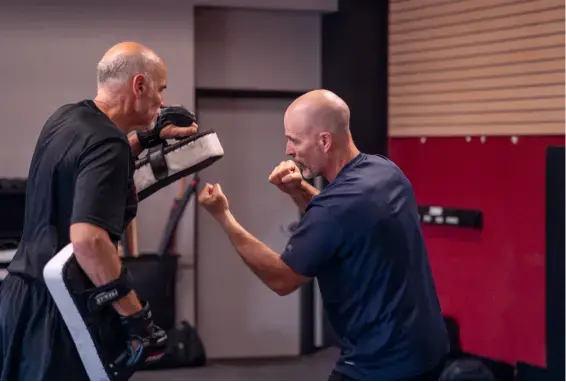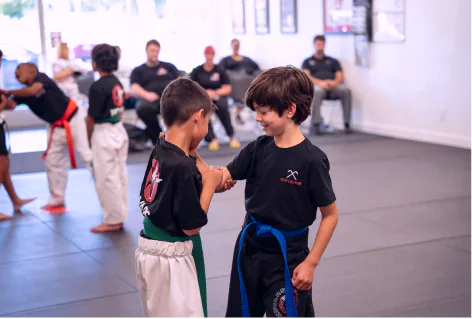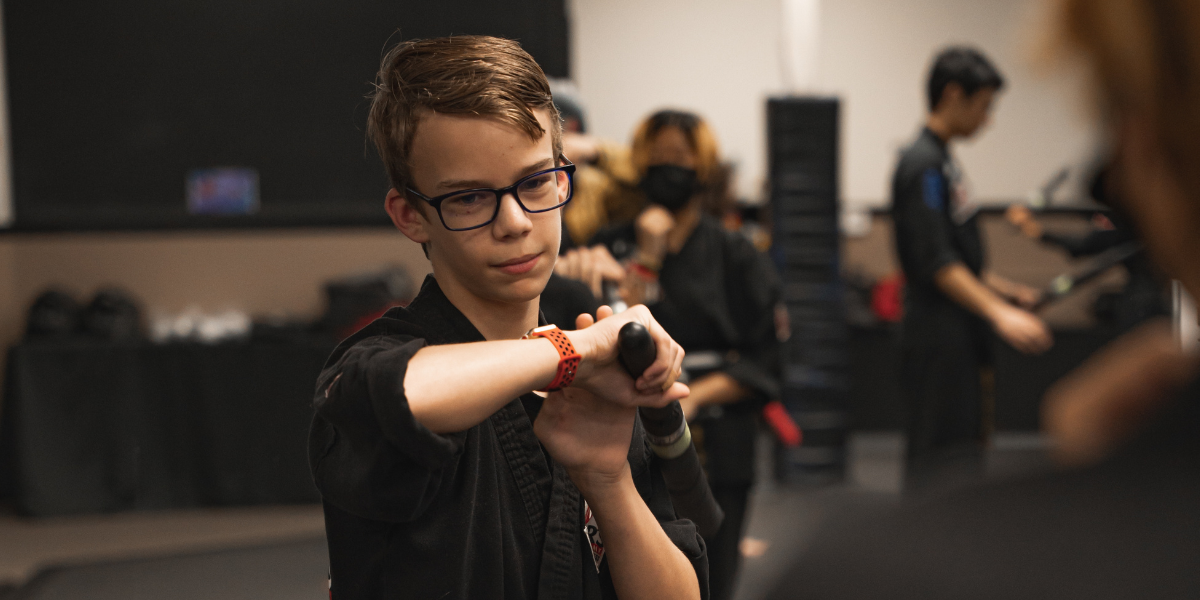Self Defense for Kids
As our children become more independent, it's important to help them understand the following phrase, "My safety is more important than their feelings."

As our children become more independent, it's important to help them understand the following phrase, "My safety is more important than their feelings." This means that if they ever feel uncomfortable with someone or someplace, they should leave and find help. Even if this means hurting someone else’s feelings, our purest intuition is almost always right!
Teaching Your Kids About Self Defense
Trust Your Intuition
Help your child identify what it is like to have an intuitive feeling and help establish the difference between being aware versus being on guard. Teach them their intuition is designed to keep them safe, and they should always trust and listen to it. Help them understand that Intuition is a feeling (oftentimes one that you can't explain) you have about people or places around you. It can be when a certain person or when being at a certain place can make them feel uncomfortable–usually that uncomfortable feeling starts in their stomach.
Be Aware, But Not on Guard
This means we are always aware of our surroundings and aware of what is going on around us, but not fearful. Helping children being aware of what's happening around them and being able to identify real danger is key. Being on guard all the time is no fun, but most importantly, could work against them. Their intuition won't work as well and will not be able to tell the difference between real danger and imaginary danger.
The Safety Zone
Talk to your child about what to do when their intuition feels negative. Their intuition is designed to keep them safe, and they should always trust and listen to it. At Kovar's self defense training we teach how to create a safety zone. A safety zone is having physical space between you and whatever the danger is. This can be distance, or it can be an actual physical object. Imagine a big, mean, barking dog. If it is behind a glass door, you probably aren’t too afraid. If there is no door between you and the dog, you are probably going to be much more scared. The door represents a safety zone.
The safety zone rule is: if a person who makes you feel uncomfortable ever approaches you, never let that person get within 3 steps. That distance represents your personal safety zone. If a person gets any closer than that, they are within reach to grab or hit you. When someone who makes you uncomfortable enters your safety zone, you should step back and yell "No, back off!" as you place your hands up. Next you should leave immediately and go tell a trusted adult or find help.
Practice
It’s one thing to talk about a plan, it’s another thing to know your child can follow through with it. To help your child establish a safety zone have your child identify a perimeter of about 3 steps away from them. Now practice by approaching the edge of their safety zone and direct them to take a big step backwards, place their hands up, palms out, about face level, and loudly yell, "No, Stay Back!" Next they should leave immediately and go tell a trusted adult.
Take a large step backwards with the right foot
At the same time bring your hands up about face level, palms facing forward
Yell loudly, "No Stay Back!"
Leave immediately and go find help
At Kovar's we teach the following power phrase, "If in Doubt...Get Out!" It is important that children, teens, and adults always trust their intuition and understand that their safety is always more important than someone else's feelings. Practicing as a family will establish your child's ability to follow through and keep them safe if they are ever in danger. And remember to repeat the power phrase, "If in Doubt...Get Out!" Children learn by repetition and by doing so you will have instilled a valuable safety skill for your children.- Hanshi Dave Kovar
If you're interested in learning more about our martial arts classes in Natomas or at one of our other locations, call or contact us today for more information or start your trial today!



